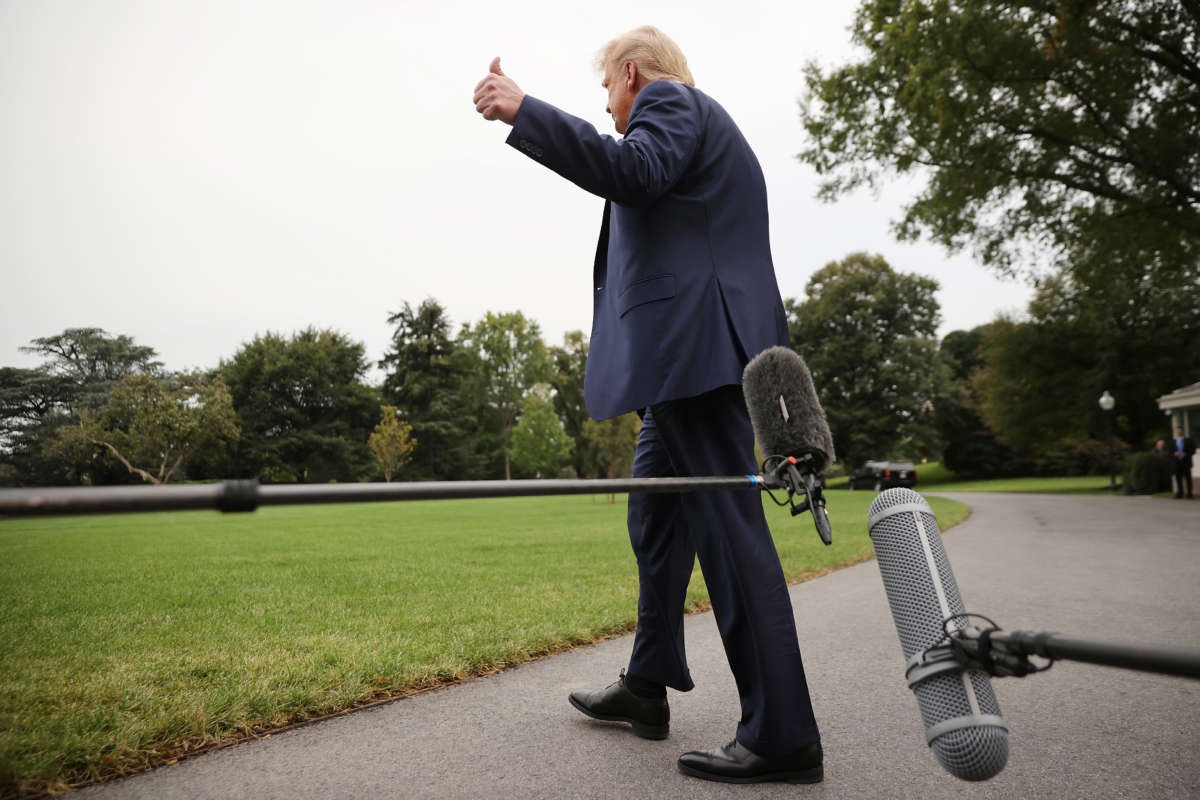A top official in the national security division of the Department of Justice (DOJ) has alerted lawyers for former President Donald Trump that the department does not believe it has retrieved all of the documents that Trump improperly removed from the White House in his final days in office.
According to The New York Times, this is the “most concrete indication yet” that the department remains skeptical of Trump’s claims that he has cooperated with their inquiry into the missing documents.
Jay Bratt, who leads the DOJ’s counterintelligence operations, told Trump’s legal team in recent weeks that he doesn’t believe all of the documents have been returned, despite various attempts from the DOJ and the National Archives and Records Administration (NARA) to retrieve them.
Trump’s lawyers formed two separate camps over how to respond to Bratt’s assertion, the Times reported. One side suggested hiring an outside firm to conduct additional searches for documents, just in case. But that proposal was overruled by the other camp of lawyers, who decided to take a more combative approach.
Bratt’s suggestion that there may be more documents in Trump’s possession comes as DOJ prosecutors have made similar claims in recent weeks, citing the discovery of empty folders marked as classified at Mar-a-Lago in a number of court filings. The fact that Trump could potentially have more White House documents in his possession “presents the potential for ongoing risk to national security,” the department said in court.
NARA has also expressed skepticism over whether all of the documents have been retrieved. “While there is no easy way to establish absolute accountability, we do know that we do not have custody of everything we should,” acting archivist Debra Steidal Wall said in a letter to House Oversight Committee chair Rep. Carolyn Maloney (D-New York) this month.
The DOJ hasn’t publicly explained why it believes that some of the documents still haven’t been recovered. But the timeline of events over the past two years suggests that their suspicion may be warranted.
For several months after Trump left the White House, NARA reached out to the former president and his lawyers directly, requesting numerous times that the documents be returned. Trump only relented when the agency threatened to get Congress involved, allowing NARA to retrieve some of the documents from Mar-a-Lago in January of this year.
During that retrieval process, the agency discovered material that was highly classified, and notified the DOJ about documents that remained at the estate. The department then issued a subpoena ordering Trump to return all classified documents and to affirm that no additional classified material remained at Mar-a-Lago. A lawyer signed that affirmation on the former president’s behalf.
Later in the summer, the DOJ obtained evidence that Trump had lied and that additional classified documents were still being kept at Mar-a-Lago. The FBI conducted a search warrant on the property in early August, uncovering thousands of government documents, including more than 100 that were marked as classified.
Federal officials have retrieved more than 300 classified government documents from Mar-a-Lago since the start of this year.
Media that fights fascism
Truthout is funded almost entirely by readers — that’s why we can speak truth to power and cut against the mainstream narrative. But independent journalists at Truthout face mounting political repression under Trump.
We rely on your support to survive McCarthyist censorship. Please make a tax-deductible one-time or monthly donation.
